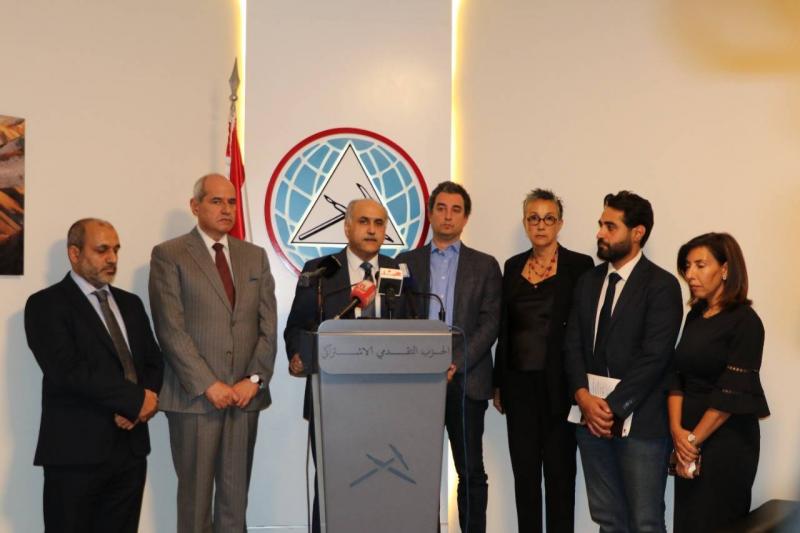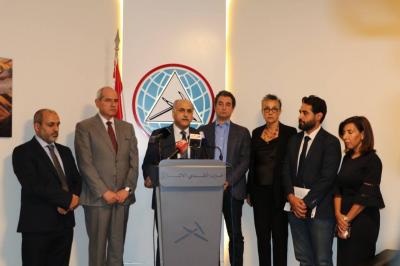The head of the "Democratic Gathering" bloc, MP Taymour Jumblatt, received a delegation of change deputies in his office in Clemenceau, which included MPs Melhem Khalaf, Najat Aoun, Halima Qaqour, Yassine Yassine, Mark Daou, and Firas Hamdan, in the presence of MPs Marwan Hamadeh, Akram Shehayeb, Hadi Abou Hassan, and MP Jumblatt's advisor, Hossam Harb.
Following the meeting, the Secretary of the bloc, Hadi Abou Hassan, stated: "Today, we welcomed our esteemed colleagues with openness and welcome, and this step aligns with our orientations that we expressed since the last parliamentary elections when we called for openness, consultation, and dialogue with all political forces and parliamentary blocs, hoping to provide the best for Lebanon and the dignity of its people. We translated this approach and conviction into several steps, the most prominent of which was when we received representatives from Hezbollah, which drew some criticism and blame for that step. However, it is natural that we are all bound by dialogue and understanding among us to overcome the escalating crises."
Abou Hassan added: "Today was an extensive discussion in which we addressed the pressing presidential entitlement that must form the beginning of exiting the major crisis engulfing the country. We started our discussion from the general framework and main titles and listened to the colleagues' proposals, but it is necessary to further crystallize positions and dive deeply toward reaching a consensus on a candidate for the presidency that meets our national aspirations. We affirmed our principled position on the necessity of exerting utmost efforts to select a capable and unifying national figure who possesses the following characteristics: First: That figure must have a clear rescue reform vision and be primarily concerned with Lebanon and its people. Second: The next president must be capable of restoring the confidence of the Lebanese citizen in their state and work to return Lebanon's relationship with its Arab neighbors to normal and then develop it further. Third: They should embody a unifying figure among all Lebanese and respect the constitution derived from the Taif Agreement. Fourth: They should not be a president of confrontation and challenge with any Lebanese team but rather a president who can, in collaboration with the government, the parliament, and all state institutions, face the challenges confronting our homeland."
Abou Hassan concluded: "These are the specifications that should be applied to any figure we will engage in dialogue with on those titles and build upon, in order to avoid a vacancy and prevent a total drowning in a quagmire of chaos, God forbid. We must not rely at all on external parties, as the countries of the world are drowning in their crises, and Lebanon is outside of their interests. This is our responsibility alone; let us care for our affairs and our country and manage our own matters. This way we become patriotic and sovereign; this is the only way to preserve what remains of the state and safeguard Lebanon."
For his part, MP Mark Daou spoke on behalf of the delegation, saying: "The discussion focused on avoiding a vacuum and that we all bear responsibility within the current circumstances because the country cannot withstand the political practices that have led to the disasters we face today."
He added: "We addressed important issues, including reform, sovereignty, and change; however, today's main idea was about the duty imposed on us through bearing responsibility and consolidating the language of dialogue to protect the country from any collapses." Daou concluded: "There is positive interaction, and the discussion is ongoing toward reaching conclusions that secure a glimmer of hope for the Lebanese to emerge from the current crisis."




